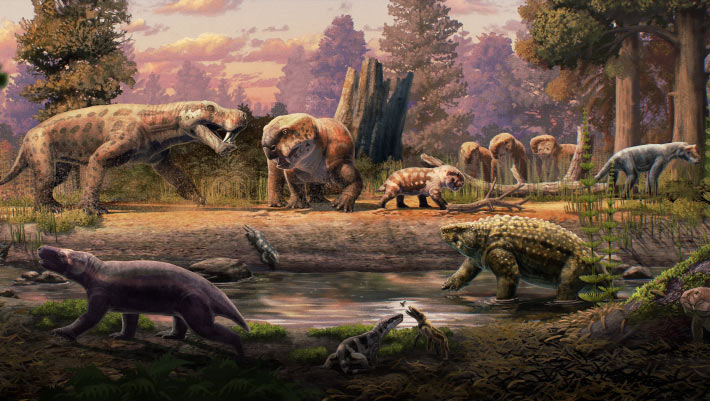Now Reading: Fossil Discoveries in Africa Unveil Insights into End-Permian Extinction
-
01
Fossil Discoveries in Africa Unveil Insights into End-Permian Extinction
Fossil Discoveries in Africa Unveil Insights into End-Permian Extinction

Speedy Summary
- Paleontologists have uncovered fossils from southern Pangea, dating back to the period before the end-Permian mass extinction (~252 million years ago).
- fossils were excavated in three basins in Tanzania and Zambia: Ruhuhu Basin, Luangwa Basin, and Mid-Zambezi Basin.
- These findings offer insights into both pre-extinction life and the transition after one of Earth’s largest mass extinctions.
- Fossil discoveries include:
– New species of dicynodonts (burrowing plant-eaters with beak-like snouts and tusks).
– saber-toothed predators known as gorgonopsians.
– Temnospondyl species (large salamander-like amphibians).
- Researchers analyzed specimens collected over a span of 17 years or previously stored in museums.
- Southern African fossil records are close to rivaling South Africa’s Karoo Basin historically considered a key reference for this era’s study.
- Findings published in the Journal of Vertebrate Paleontology provide details on survival patterns during ecological upheaval.
Indian Opinion Analysis
This discovery marks significant progress in our understanding of prehistoric life during critical evolutionary junctures. The research highlights contributions from African fossil sites beyond the customary Karoo Basin focus, offering deeper insight into global biodiversity dynamics during mass extinction events. Such revelations are pivotal not just for paleontology but also environmental studies concerning resilience amid natural disasters. Looking ahead, broader collaborations across regions like India-home to rich fossil beds such as those found near Gujarat-could enhance international efforts by piecing together further global details about ancient ecosystems. For India, knowlege gained from these studies may support investigations into its own unexplored past landscapes while fostering advancements in earth sciences for both academic and conservation purposes.




























